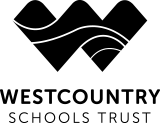Knowledge Organisers
A knowledge organiser (KO) sets out the important, useful and powerful knowledge on a topic on a single page (Kirby, 2015). For students to succeed in a particular area, they must have a foundation of factual knowledge, understand those facts in the context of a conceptual framework and organise knowledge in order to facilitate retrieval and application (Bransford et al., 2000).
Regular retrieval practice is important, because active retrieval aids later retention (Roediger et al., 2011). This can take various forms, e.g. low-stakes quizzes during lessons, or writing down the dates for key events in a timeline from the KO. It could be free recall, where students write down everything that they can remember on the topic, before checking the KO, or perhaps filling in a blank (or partially blank) knowledge organiser. Testing will also identify gaps in knowledge, lead to more learning on the next study session and produce better organisation of knowledge (Roediger et al., 2011).
We ensure that the material included in knowledge organisers is elaborated upon, by relating it to additional knowledge associated with it, often in the form of ‘why’ questions. There is an element of retrieval practice contained in this strategy, known as elaborative interrogation, but it works by ensuring that there is some sort of active understanding and meaningful consideration of what is being learnt (Willingham, 2014). Building complex schemas requires knowledge to be connected, so that this can be used when learning X by asking, ‘How does concept X relate to concept Y?’ The strategy of elaborative interrogation is also used at Hele’s, and students will be asked regularly to organise the knowledge contained on the KO into different organisational structures. For example, a list of key historical figures from the Second World War could be organised hierarchically in terms of power/status, could be built into a concept map or could be re-ordered into another list.
All subjects at Hele’s have shared with students KOs for each subject. These are kept in their KO folder and the students also have a KO exercise book which they use to record their learning.





